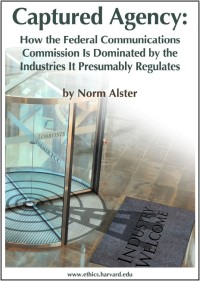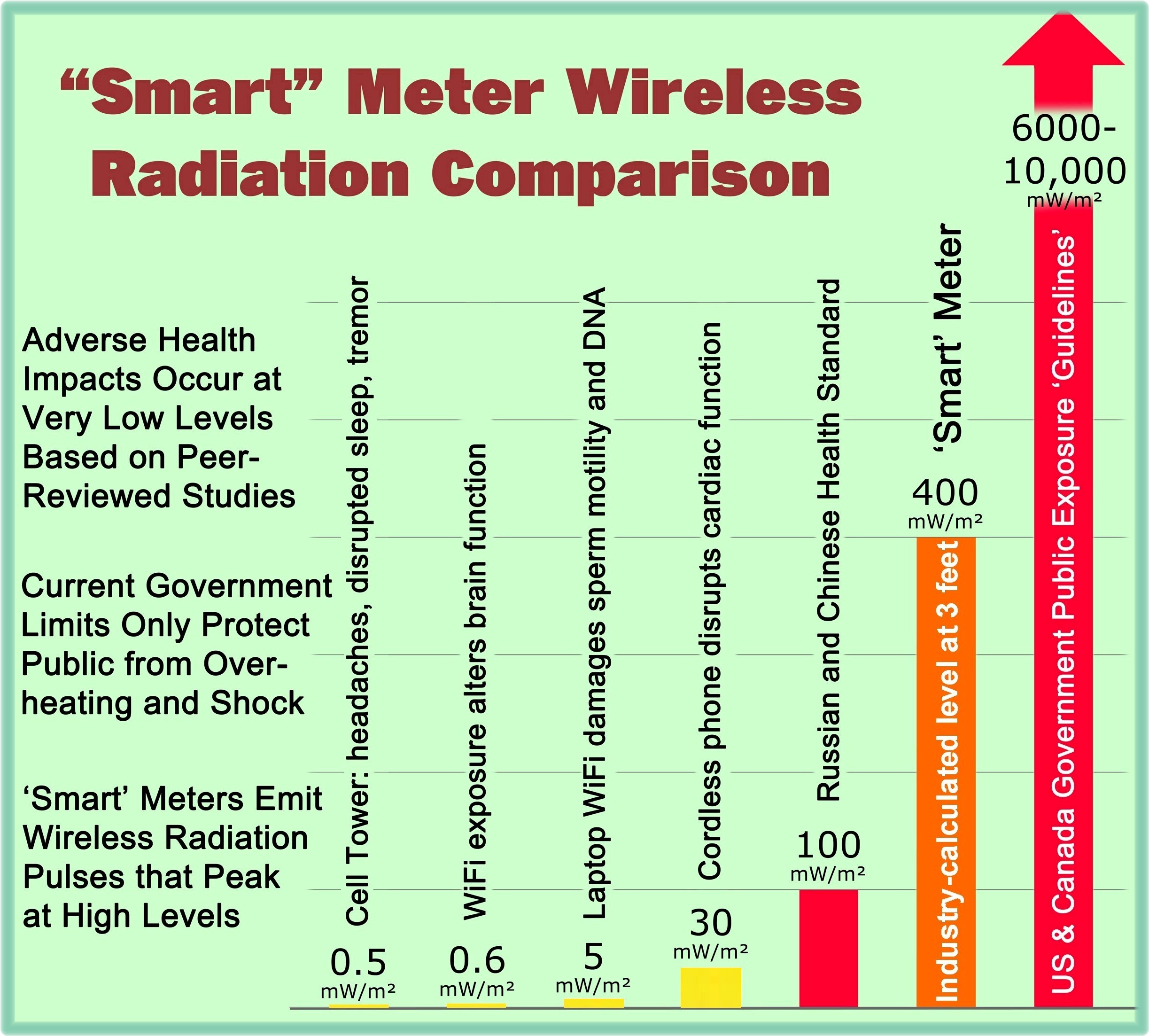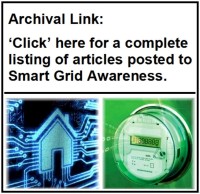 In the area of privacy, data security, and health concerns, there is considerable scientific literature, government documents, expert testimony, etc., to substantiate that there are increased risks associated with smart meters as compared with analog electrical usage meters.
In the area of privacy, data security, and health concerns, there is considerable scientific literature, government documents, expert testimony, etc., to substantiate that there are increased risks associated with smart meters as compared with analog electrical usage meters.
For the issue of fires, the evidence is more anecdotal in nature. Smart meter fires is not exactly a topic that has prompted technical research or the issuance of government reports. However, even if the problem is sporadic, if your house burns downs with a potential loss of life due to a new smart meter installation, it is an extremely serious situation. In reality, there are hundreds and probably thousands of instances where the installation of a smart meter is followed by overheating and a subsequent fire.
When fires occur, utilities will many times blame the “customer’s wiring” for the problem. However, after a review of news reports and technical blogs addressing smart meter-related fires, the most credible conclusions for the source of fires are as follows:
- Insufficient care is taken by smart meter installers. Socket receptacles may be corroded when the switch from the analog meter is made to the smart meter. Rather than doing a quick swap, much more care needs to be taken with an associated inspection and cleaning of the meter socket. For these types of situations, a fire might occur just because the meter is changed out in an improper manner (no matter what type of meter is involved with the swap).
- Some manufacturers are just making “cheap” smart meters or have poor quality controls such that a fire becomes more likely. In these cases, the risk for a fire may be more dependent on the manufacturer of the meters themselves.
- There is a material composition difference in the construction of the smart meters such that they operate at higher temperatures or have a lower flash point. Plus, you have the more obvious difference that the smart meter contains at least one electronic circuit board and an analog meter does not.
 The first two problem areas discussed above are correctable through better installations and better quality controls. But the last area dealing with different construction materials and use of electronic circuit boards is possibly more problematic and indicative of an inherent design problem. The analog meter typically has an industrial look to it, but a smart meter looks to be more of a “consumer electronics” quality. Refer to the figures for views of both types of meters during a “teardown.” Most of the smart meter device appears to be made of plastic with inclusion of a cheap looking circuit board. Part of the circuit board includes a transformer that is required to step down the incoming voltage of 240V to about 10V which further needs to be rectified to power DC components in the meter.
The first two problem areas discussed above are correctable through better installations and better quality controls. But the last area dealing with different construction materials and use of electronic circuit boards is possibly more problematic and indicative of an inherent design problem. The analog meter typically has an industrial look to it, but a smart meter looks to be more of a “consumer electronics” quality. Refer to the figures for views of both types of meters during a “teardown.” Most of the smart meter device appears to be made of plastic with inclusion of a cheap looking circuit board. Part of the circuit board includes a transformer that is required to step down the incoming voltage of 240V to about 10V which further needs to be rectified to power DC components in the meter.

 Smart meters are generally not UL listed. Underwriters Laboratories has a program for listing of utility meters, but it is a voluntary program for meter manufacturers since there is no regulation that requires such a listing. [Imagine that, all the mandates on the consumer but there is no mandate for the utility to install a UL listed meter on your home.]
Smart meters are generally not UL listed. Underwriters Laboratories has a program for listing of utility meters, but it is a voluntary program for meter manufacturers since there is no regulation that requires such a listing. [Imagine that, all the mandates on the consumer but there is no mandate for the utility to install a UL listed meter on your home.]
Smart Meter Fire Concerns in Australia
An Australian news station did a good review on smart meter fires last year; refer to the video shown below.
.
Smart Meter Fires in the Pennsylvania Area
For an excellent news report from September 2012, regarding smart meter fires in the Pennsylvania area, click on the link below:
http://www.nbcphiladelphia.com/news/local/Officials-Investigate-PECO-Meter-Fires–170122226.html
Smart Meter Safety Concerns at Memphis Light, Gas and Water (MLGW)
Another news report on this topic was made on May 12, 2013. Memphis Light, Gas and Water (MLGW) claims to be one of the nation’s largest municipal utility, serving nearly 421,000 customers. Refer to the video link below, where a representative from the IBEW states that MLGW’s proposed smart meter expansion is a “bad idea.”
[Above video clip contains material used pursuant to Fair Use Doctrine under 17 U.S.C.]
Smart Meter Fire in Florida
More recently, there is a report out of Florida in late August 2013, where “Fire Sparks Concerns about ‘Smart Meters.’” You can view a news report on this fire at the following link: http://www.wfla.com/story/23278891/lakeland-fire-sparks-concerns-about-smart-meters.
[Refer to http://web.archive.org/web/20140327063410/http://www.wfla.com/story/23278891/lakeland-fire-sparks-concerns-about-smart-meters, as the above link appears no longer valid.]
 According to the report out of Lakeland, Florida:
According to the report out of Lakeland, Florida:
“A charred electrical box is what’s left of a very scary weekend outside [a] Carillon Lakes condo in Lakeland.
[The resident] says the digital ‘smart meter’ on her home burst into flames damaging two adjoining meters. The flames fizzled out by the time Lakeland firefighters arrived, but the fear sparked by the situation is still smoldering for [the resident] and her neighbors.”
Commonwealth Edison and the Illinois Commerce Commission
A review conducted by the Illinois Commerce Commission (ICC) found a number of problems associated with the ComEd smart meter program that could contribute to fire-related situations. As reported by the Crain’s Chicago Business in September 2013, “Human Error Caused ComEd Smart Meter Fires.” As reported, “for the smart meter pilot program, ComEd upgraded 40 meter readers to smart meter installers but gave them substantially less training than a typical meter technician. … Smart meter fires occurred at installations made by upgraded meter readers with minimal training.” Concerns identified by the ICC report included:
- For ComEd fires, “customer meter bases with aged, corroded, and perhaps damaged electrical connections caused the fires, in part because ComEd smart meter installers did not recognize and repair or report customer meter bases in poor condition.”
- “The majority of ComEd’s AMI meters are equipped with temperature sensors and can report their internal temperature on command. … However, a problem with the scans soon made itself known.… Apparently, radiofrequencies can enter the meter and cause the temperature sensor to report significantly inaccurate measurements.”
- “When and where Illinois utilities have completed their smart meter installation programs, they will have no further need for meter readers. With the loss of meter readers, monthly utility visits to meters and meter bases will also end. Meter readers have always provided at least a visual, if superficial, monthly inspection of the exterior of meters and meter bases. … The future absence of meter readers … reduce[s] the number of opportunities for utility employees to observe signs of and evaluate the potential for future meter base overheating.”
Consumer Product Safety Commission
A spokesman at the Consumer Product Safety Commission in Washington D.C. says the agency is aware of the growing number of complaints.
‘We’re trying to find out what’s going on,’ said CSPC Deputy Director Alex Filip. He says the agency is trying to find a pattern or defect if one exists.”
 Although the Consumer Product Safety Commission (CPSC) could state the utility smart meters are outside its jurisdiction since they are not technically considered “consumer products” by most accounts, the CPSC is apparently accepting complaints for smart meters at this time.
Although the Consumer Product Safety Commission (CPSC) could state the utility smart meters are outside its jurisdiction since they are not technically considered “consumer products” by most accounts, the CPSC is apparently accepting complaints for smart meters at this time.
To find out more information on how to file a complaint with the CPSC, refer to the following link:
https://www.saferproducts.gov/CPSRMSPublic/Incidents/ReportIncident.aspx

The above link will bring up a screen that indicates you actually four (4) options to file a report:
- Online
- By Phone
- By E-mail
- By Postal Mail.
For smart meter safety issues, particularly for fires, you can file a complaint (Report) for a specific problem or harm you have experienced, or a complaint (Report) can be filed to document a safety concern with a product, i.e., “The potential for an unsafe consumer product to cause an incident or injury.”
Thus, this is an area where if enough consumers document their concerns with the CPSC, it could conceivably have an effect on public policy. At the very least, smart meters should be required to be UL listed due to the concern for fires.






Here is excellent media coverage of yet another recent smart meter fire…..this one in Florida: http://www.wfla.com/story/23278891/lakeland-fire-sparks-concerns-about-smart-meters
P.S. Your website is outstanding! Thank you for all your efforts.
Thanks for the feedback; yes, this Florida fire is mentioned in the posting with the link. I’m just not able to embed the video into my website from that news source. It certainly is worth watching. The utilities typically say the meter was not the problem, it was the customer’s wiring, etc. But yet these fires are only reported to happen with smart meters. Have there been ANY such fires reported with an analog meter? I’d be interested in hearing of any documented fires occurring with analog meters. Something defies common sense when they [the utilities] never seem to blame the smart meter, … or the installer for the smart meter fire.